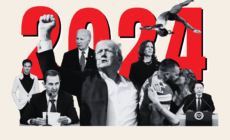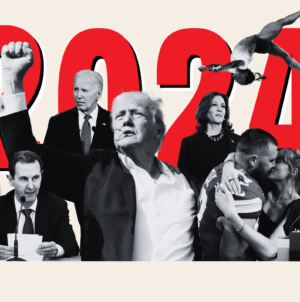-
Year in Review: What Moment Defined 2024? Newsweek Writers’ Verdicts - 21 mins ago
-
Encountering Italy and Germany on a Road Trip Through Southern Brazil - 28 mins ago
-
America’s Most Popular Christmas Movies Revealed - 58 mins ago
-
How Netflix’s ‘Culinary Class Wars’ Made Chef Anh Sung-jae a Star - about 1 hour ago
-
Dodgers Considering Blockbuster Trade For Luis Robert Jr. - 2 hours ago
-
How to Keep ‘People Pleasing” From Ruining Your Finances - 2 hours ago
-
Federal Judge Sets Court Date After NASCAR Appeals 23XI Racing And FRM Lawsuit Milestone - 2 hours ago
-
Inside the Final Days of the Assad Regime in Syria - 3 hours ago
-
College Football Playoff: Texas Eliminates Clemson, Will Play Arizona State in Peach Bowl - 3 hours ago
-
How To Get Your Steps in Over the Holidays, According to Personal Trainers - 3 hours ago
US Launches Probe Into Human Rights and Labor Abuses in Nicaragua
The Biden administration has launched an investigation into alleged labor and human rights violations in Nicaragua, marking a significant development in the already tense relations between the two nations.
What Happened?
Announced by U.S. Trade Representative Katherine Tai, the investigation is authorized under Section 301 of the Trade Act of 1974 and aims to assess not only allegations of abuse but also the extent to which they affect commerce with the U.S. The probe must conclude within a year, with potential retaliatory measures contingent on its findings.
“Numerous reports suggest the Government of Nicaragua is engaging in repressive acts that harm Nicaragua’s own workers and people, undermine fair competition, and destabilize our region,” Tai said in a statement.
This investigation comes as international concerns continue over the authoritarian rule of President Daniel Ortega.
Tai’s statement also cited credible reports by several watchdog groups against Ortega’s government, including politically-motivated arrests, forced labor, human trafficking and repression of freedom of association and collective bargaining.
“Such actions exacerbate worker exploitation and diminish economic growth and trade opportunities,” the U.S Trade agency said.
The inquiry also coincides with International Human Rights Day and builds on U.S. efforts to hold authoritarian regimes accountable.
Ortega’s Rule Under Scrutiny
Nicaragua’s government has intensified its crackdown on dissent, imprisoning opposition figures, exiling journalists and shuttering over 5,000 organizations since 2018.
Ortega recently proposed constitutional reforms to consolidate power, including extending presidential terms and declaring himself and his wife, Vice President Rosario Murillo, as “copresidents.”
While Murillo has yet to comment on the U.S. investigation, the Ortega regime’s actions have drawn widespread condemnation from human rights groups.

Alfredo Zuniga/AP
Comparisons to U.S.-China Trade Tensions
The investigation mirrors recent U.S. measures against China in May, where Section 301 tariffs were imposed on products such as electric vehicles and solar cells due to alleged unfair subsidies. Those tariffs largely reflected the government’s conclusion that China was unfairly subsidizing those industries.
“For years, the Chinese government has poured state money into Chinese companies,” President Joe Biden said about those tariffs. “It’s not competition, it’s cheating.”
In Nicaragua’s case, any punitive measures would need to navigate the complexities of its membership in a regional free trade pact, the Central America Free Trade Agreement (CAFTA). Analysts caution that such actions could have significant economic repercussions for both nations, particularly Nicaragua, where trade with the U.S. forms a critical part of its economy.
Nicaragua presents unique challenges due to its trade surplus with the U.S., totaling approximately $3 billion in 2022—nearly 20 percent of its gross domestic product.
This article includes reporting from The Associated Press.
Source link




















